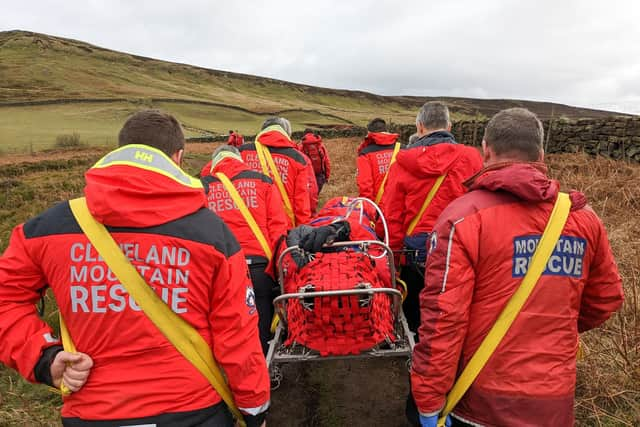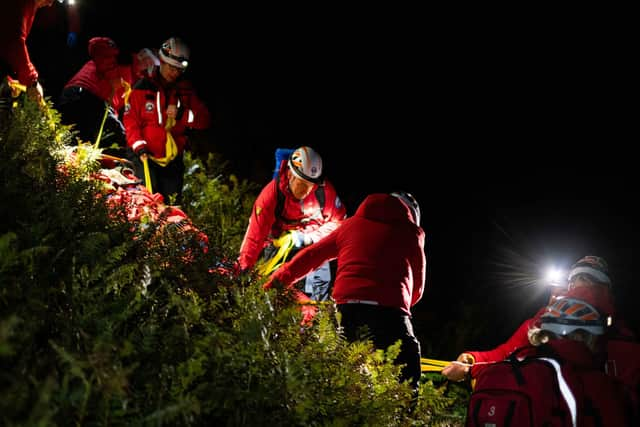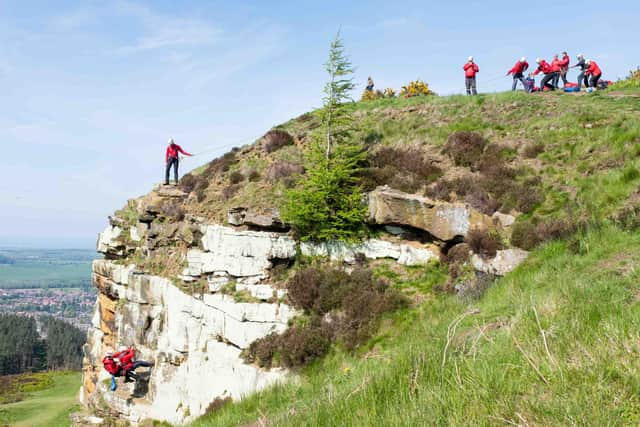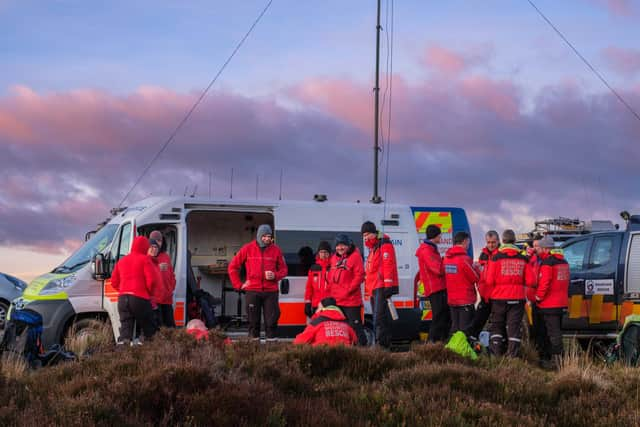Mountain Rescue: More people accessing Yorkshire countryside leading to increase in emergency situations
Not the most appealing job description – yet one take up by a select group of people that have to pass a rigorous and thorough training regime that can take more than a year.
They are not government funded – yet if you get into a spot of bother in the deepest, darkest and remote parts of the North Yorkshire countryside - from the coast to the hills and moors – chances are, these are the only people that can come and help you.
Advertisement
Hide AdAdvertisement
Hide AdCleveland Mountain Rescue Team (MRT) was set up in the 1960s as a result of the Lyke Wake Walk becoming increasingly popular and people getting lost or suffering injuries whilst attempting the 42-mile route.


National Park Wardens were having to deal with situations so decided to form two Rescue Teams as one alone couldn’t cover the vast area of countryside in North Yorkshire.
Cleveland Search & Rescue Team, would cover the north area and Scarborough & Ryedale Search & Rescue Team the south.
Back then they used their own vehicles and “begged and borrowed” equipment, but now these search teams, while still unpaid and voluntary, are some of the most skilled and equipped outdoor rescue people in the country.
Advertisement
Hide AdAdvertisement
Hide AdTo the extent that in January, two Cleveland members took part in the Montane Spine Race MRT Challenge North.


The Spine Race is dubbed one of the toughest endurance races in the world and the duo took on 168 miles of the Pennine Way from Hardraw in North Yorkshire to the finish line at Kirk Yetholm via the Yorkshire Dales, Northumberland National Park, Hadrian’s Wall and the Cheviots – with a time limit of 108 hours.
So when it comes to call-outs closer to home and in less time – they are well-equipped.
When a call comes in, often referred by the police, the call-out officer, which for Cleveland MRT is Gary Clarke, puts out an alert and everyone available will respond.
Advertisement
Hide AdAdvertisement
Hide AdA few crew members who live near the Cleveland MRT base at Great Ayton will collect the rescue vehicles, usually Land Rovers, while a second message will be sent out to the rest of the team with a rendezvous point near the incident.


MRTS are usually called as incidents are at locations inaccessible by regular ambulance, which also means team members have to walk to search for and find the casualty – and do it carrying an extensive kit list which includes stretchers, medical supplies such as splints and bandages, a casualty bag (like a sleeping bag), vacuum mattress, vacuum splint and a drugs bag, oxygen and gas and air pain relief.
Mr Clarke said: “Most of the calls are walkers, runners or mountain bikers even well equipped ones, who have slipped or tripped. We often get ankle, knee or lower leg breaks.”
Of course, last month one such customer was Julian Norton, the Yorkshire Vet who sustained a knee injury while out mountain biking. There have been three other call outs so far this year.
Advertisement
Hide AdAdvertisement
Hide AdLast year, Cleveland MRT attended 51 call-outs, most of which were on a weekend with numbers slightly down on the usual average of 60 (for 2019-2022).


There were nine searches and 42 rescues (one including a dog rescue and also recovering snow-bound motorists).
Missing people searches and flood and bad weather rescues are also on the job notes.
Mr Clarke said: “The last five or six years have been busier than they used to be. There are a lot more people out and about.”
Advertisement
Hide AdAdvertisement
Hide AdThere are around 45 to 50 search and rescue members and ten support members who may help with kit and vehicle maintenance or fundraising as it costs a basic £42,000 per year to run Cleveland MRT, not including buying rescue Land Rovers.
You’d expect that MRT want to be government funded but this is not the case – with reason.
Mr Clarke added: “We are always quite surprised when we do fundraisers and country shows about how many people think we are employed as search and rescue members not volunteers.
"I can’t see it (government funding) in the current climate, but if you speak to MRT, they prefer it not to be because you get the control element and there could be cut backs.
Advertisement
Hide AdAdvertisement
Hide Ad"There is a preference that there should be a donation. It can be hard at times but if you get government control there are down sides.”
'The Country Post newsletter - bringing you all the latest on rural life and farming across Yorkshire. Sign up today www.yorkshirepost.co.uk/newsletter
Comment Guidelines
National World encourages reader discussion on our stories. User feedback, insights and back-and-forth exchanges add a rich layer of context to reporting. Please review our Community Guidelines before commenting.
